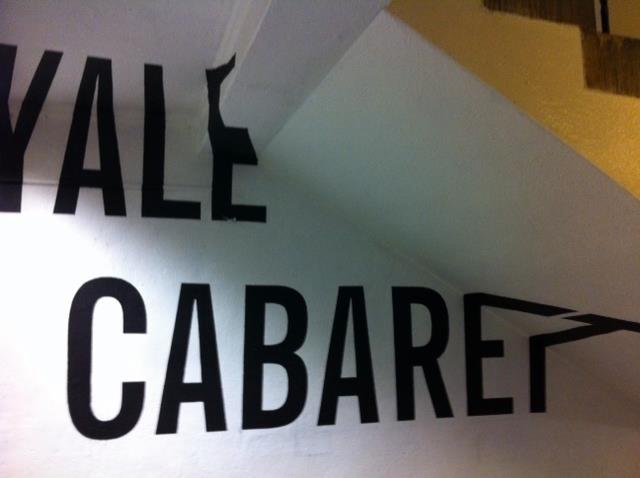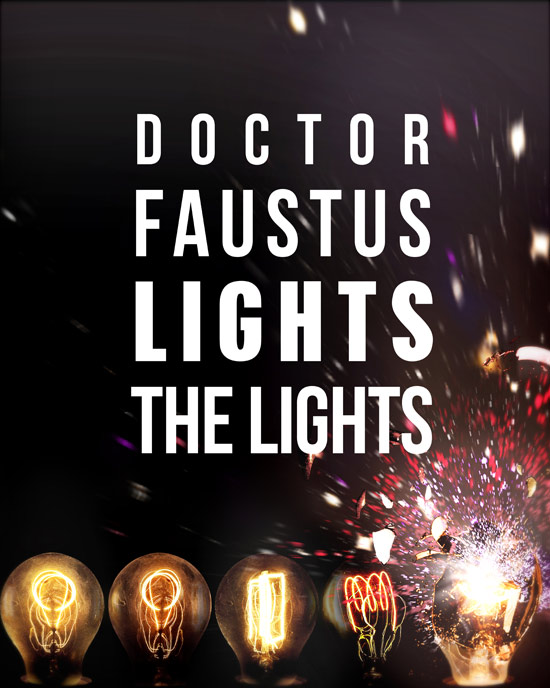Review of Endgame, Long Wharf Theatre
Writing my review of this grayest of plays on this grayest of days is deliberate. To have Samuel Beckett’s Endgame onstage at this point in time was a commendable choice on the part of Gordon Edelstein, Artistic Director of the Long Wharf and director of this production. Beckett, famously, was against seeing “symbols where none intended,” and would not welcome allegorizing his play into a commentary on any situation too topical, and yet. The play’s grim sense of how adaptable humans are to what are sometimes called “unthinkable” conditions strikes a certain tonic chord for us now.
Endgame, originally written by Beckett in French then translated into English, dates from the late 1950s, drawing on a post-World War II world of scarcity, death, destruction, and, with the bombs dropped on Japan, a glimpse of what utter destitution might look like. But, more telling perhaps than that general context, the play originated from one of the most minimalist minds to ever emerge in English letters, and that as an Irishman writing in French. Beckett’s writing always keeps in mind the bare minimum of existence, while also imbuing its bleak and prickly situations with the humanity found in Shakespearean moments like Prince Hamlet talking to a skull, or blinded Gloucester recognizing “the trick of that voice,” or a Scots porter rambling on about drink and urine on the morning after a game-changing regicide.
In Endgame, Beckett creates a situation where Hamm (Brian Dennehy), a domineering but dependent, blind old man lords it over a kingdom reduced to a bare, gloomy room and a single factotum, Clov (Reg E. Cathy). Several paces away from Hamm’s chair upon casters and to his right, sit two trash-bins, one for Nagg (Joe Grifasi) and one for Nell (Lynn Cohen), Hamm’s straitened parents. On the wall behind Hamm’s chair are two windows high on the wall, and several paces away from Hamm, on his left, a door to a kitchen.
That set-up is all that Beckett’s play gives us, and the author was adamant about that, so one wonders what he would make of Eugene Lee’s busy set, which fascinates even before the actors appear. In columns towering on either side of the space are chairs upon chairs with books mixed in. They’re the kinds of chairs often found in libraries and seem to exude the weight of a lost, literate culture. On the stage, by the trashbins, is a clutter of detritus—more books, a computer, other bric-a-brac—and a grandly disemboweled and disintegrating chair. Then there’s that door: it’s not a bedroom door or the front door or even backdoor of a house. It’s a door, reinforced with a mesh of steel, such as might be found in a bunker or in a storage room abutting on a dark alley.
This Hamm and Clov exist amidst worthless crap in a final redoubt, and all they’ve got to get by on is their own frail wits and, for what it’s worth, routine. Routine, as in the rituals we each perform each day, of rising and taking stock—of the weather, our health, what we might undertake or not—but also routine as in theatrical routines, the expected shtick of telling stories, making speeches, moving about and using props.
Dennehy’s Hamm is a commanding presence, a great head with cheery white beard and dark glasses that make him seem cool and detached. His manner is rarely querulous or discomfited, as we might expect of the old and infirm, but rather bristles with the grandeur of a man of parts down to his last part. The attraction of the role is in its grasp of how even diminished resources can be milked for all their worth—an actor’s dream, one imagines—and Hamm is a showman very canny about what he’ll show and what he won’t. Impatience is his strongest response, but his enjoyment of a phrase or a reaction soon makes us share his aural space, so to speak. Hamm weighs everything that is said or occurs and wants constant reports on what he can’t see. He is omnivorous intelligence left with nothing to feed on but its own fading powers of discernment and elaboration. Dennehy’s Hamm is easily magisterial, and human and funny, and, in a very important way, utterly unknowable. I don’t think anyone will equal this bravura performance for quite some time.
Brian Dennehy as Hamm (photo: T. Charles Erickson)
Hamm’s story of the man who came to see him, on his belly, is, perhaps, the lurking origin story of Clov but is also a bit of theater to divert himself, by an imagined past, from the dark present. He coerces an audience from his father, Nagg, and earns the older man’s ire. Nagg’s memory of Hamm’s own childhood creates a sense of both reversed and perpetual dependencies. Much as the charmingly scattered exchanges between Nagg and Nell play with the dimmest recollections of courtship and the shared joys of a life together. Grifasi’s arch delivery of Nagg’s joke about the tailor easily breaks the fourth wall to enter our space, very tellingly.
Nell (Lynn Cohen), Nagg (Joe Grifasi) (photo: T. Charles Erickson)
Beckett, of course, already allows for just such moments, as when Clov peers through a spyglass at the audience and professes to see “a multitude, in transports of joy.” While not quite the vaudevillian style of clown one associates with Beckett, Cathey, with his deep and convincing voice, brings an appealing dignity to the role. His manner adds a sly humor to many of Clov’s exchanges with Hamm that lets us see how the impatience of man with master and of grown child with parent become child again is a condition made bearable only by humor. The pair’s warmest exchange is an unscripted moment of contact that amplifies the strong bond between this antagonistic and mutually dependent duo. It’s indelible and evanescent, as the best theater moments are.
Hamm (Brian Dennehy), Clov (Reg E. Cathey) (photo: T. Charles Erickson)
The presence of sound in the play is also of interest: from the deafening fanfare, with a crescendo of heavy metal guitar and sirens and lord knows what else, that opens the play, to the loud blasts of Hamm’s whistle to summon Clov, to the huge clang of that slamming door. Edelstein and his team have conjured up an Endgame wonderfully cast, perfectly paced, and fraught with an edginess that asks us to think about the resources of theater in uneasy times, the way Beckett himself might imagine them for us.
And yet we know that Hamm, like Lear, is not a figure for what is wrong with the State. He’s a figure for what is never to be righted with the state of humanity. Hamm’s cry, “You’re on earth, there’s no cure for that!” is a reminder of how bleak being here can be. And yet Dennehy gets across the consolation that Beckett’s characters find in speech: nothing’s so bad that it can’t be made better or worse by speaking about it. That’s the only notable human contribution.
Endgame is the business of life reduced to the meanest of circumstances and the business of theater exulting in minimal riches. Mercy upon us, as my Irish ancestors would say.
Endgame
By Samuel Beckett
Directed by Gordon Edelstein
Set Design: Eugene Lee; Costume Design: Kaye Voyce; Lighting Design: Jennifer Tipton; Production Stage Manager: Kathy Snyder; Production Dramaturg: Christine Scarfuto; Casting by Calleri Casting
Cast: Brian Dennehy; Reg E. Cathey; Joe Grifasi; Lynn Cohen
Long Wharf Theatre
January 5-February 5, 2017









